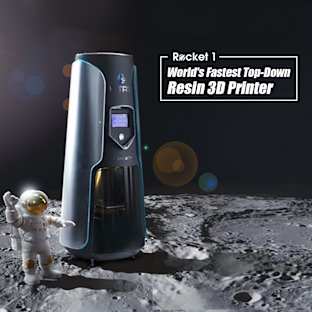The Golden Dorado
Dorado (Salminus brasiliensis) is
an iconic and charismatic fish species in neotropical rivers of Brazil,
Paraguay, Uruguay, Bolivia, and northern Argentina. Both sport and commercial
fishers value Dorado for their sustenance, vigor, beauty, and challenge. Dorado
provides economic support for communities in northern Argentina and throughout South
America. Currently the species is facing severe pressure and declining
populations due to overharvest harvest, habitat degradation, and poorly understood ecology, including movement patterns.
Little is known about Dorado movements and
response to disturbance (Agostinho
et al. 2008, Hahn et al 2011). The Salta region of Argentina is
limited in management resources and faces high social and economic stakes under
poor management of this species. A well-managed Dorado fishery could
potentially provide long-term income to the region. We will investigate the impacts of catch-and-release (C&R) by measuring blood physiology and post-release activity patterns. This work will add to the development of best practices for the C&R
of Dorado, plus provide insights into their movement ecology.
Our objective is to assess the impacts of recreational fishing, local
stakeholder practices, and habitat conditions on Dorado. Catch-and-release impacts (fight time, air exposure, angling
method) will be assessed for correlation with physiological biomarkers (blood
lactate, blood glucose, blood pH). Additionally, after tagging fish with radio
tags and subsequent mobile tracking, we will quantify immediate post-release
behavior along with longer-term habitat selection, movement patterns, and home
ranges. Data obtained from this study will be used to develop proactive conservation
and management strategies for Dorado populations in the region. In addition the
project will build capacity in the region for local guide and stakeholder
involvement in continuing research.
--
The research being conducted is guided by a team from the University of Massachusetts Amherst Department of Environmental Conservation.
A team of ecologists will be working in the field, on the Rio Juramento to complete of the objectives you've seen listed.
As the first study of its kind the iconic Golden Dorado the findings and work here stands to be key info that ensures the Dorado will be thriving for years to come.
--
What we need and what you'll get in exchange.
Conservation fieldwork and research face significant funding challenges, especially in remote and rural regions under significant environmental pressure of risk and loss.
Funds are needed to cover expenses for: research equipment, travel costs, local guides and assistance, housing, fuel, boats, permitting, and vehicles.
We are building partnerships with local and international partners: companies, universities, and organizations to garner sustainable funding. But with the exploratory and unknown nature of this work your start-up funds are what get this project off the ground.
Local guides have been incredibly supportive with their guidance and assistance to develop the research goals and initiatives.
Any funding that exceeds the need of research expenses is being endowed to the Fundacion Rio Juramento, a non-profit organization devoted to protecting the Rio Juramento and surrounding watersheds that act as habitat for the Golden Dorado.
![]()
![]()
![]()
![]()
![]()
![]()
Specific objectives and tasks
1) Effects of catch and release on Dorado.
We will use a rapid assessment approach to quantify
the physical and physiological impacts of catch and release recreational
angling specific to Dorado (importance of
species specific practices see: Cooke and Suski 2005). We will measure hooking injury, physiological
stress response, reflex impairment, and short-term mortality related to
commonly used capture and handling methods for Dorado in the Salta region. This type of information does not currently
exist for Dorado. Information obtained though this research will
lead to development of best practices that can be adopted by anglers, guides,
and local management to increase post-release survivorship and provide valuable
resources for managers and anglers in the development of management plans
(Arlinghaus et al. 2007).
2) Post-release behavior and movements of Dorado
We
will use radio telemetry to measure the
behavioral response and short-term movement patters of Dorado following
catch-and-release angling. Gentle and
aggressive handling treatments will be established based on the outcome of the
rapid assessment, and fish from these treatments will be manually tracked
post-release. Correlative relationships
will be possible between handling treatments and factors such as rates of
movement, habitat selection, and dispersal from site of capture and
release. Measures of flow
regulation, habitat conditions, riparian area loss, sedimentation, and
irrigation diversion will also be classified and relationships will be noted.
This element of our project will fill information gaps on post-release delayed
mortality, and spatial ecology of Dorado in a region that is coming under
greater pressures for development.
3) Socio-ecological survey development and deployment
We
will conduct surveys of local
stakeholders, including farmers, anglers, guides, and visiting
tourists/fishers to classify conflict and perceptions related to Dorado and the
Rio Juramento. Closed and
semi-structured interviews along with surveys will be used to identify issues
constraining stewardship and management such as commercial harvest, recreational
fisheries, and land-use. This element of the study will help put the outcomes
of the first two projects into a broader perspective as they relate to
conservation and management options for Dorado in the Salta region. Addressing the social/fisheries conflicts
will be critical for pro-active anticipatory rather than reactionary
management.
Risks and challenges
Rivers, the fish the live in them, and the watersheds that feed in to them are incredibly dynamic systems that have supported communities for millennia. River protection and health is important to everyone that depends on them. Yet society is always facing additional pressure from social inequality and economic needs. We hope that the findings from our work will be key information in environmental decision making around Golden Dorado that is considerate of all challenges facing the communities supported by these fish and the rivers they inhabit.
--
So what comes out of this work?
- When you fund any project you want to know; what is your money doing? And what greater impact will have?
So lets be clear about what comes out of this work...
1. Greater knowledge of the Dorado and the community it supports which better informs sustainable management and conservation
2. A chance to perform a rapid assessment of a poorly understood fish facing growing angling pressure in an emerging region. Which will provide lessons and guidelines to be applied to other fish facing similar pressures in remote and striking regions around the world in fast growing emerging regions.
3. Research for peer-reviewed scientific publications that will be published and shared with colleagues and the public that can better inform their own management, research, and conservation initiatives of catch-and-release fisheries in similar and varying locales.
4. A presentation will be developed for an international fisheries management symposium on the tools, lessons learned, and objectives achieved in this project. World leaders in recreational angling will be able to learn from, and provide comment on the initiative you supported.
5. Social media, photo, video, and audio coverage of the efforts will be continuously shared during and after the project. This will be an opportunity to share the stories of local guides and community members with you, the interested and engaged angling community. Blog posts, instagram photos, and videos will be published on angling websites, organization website, and with company partners: Costa Sunglasses, Patagonia Fly Fishing, The Drake, and The Cleanest Line.
--
Other ways you can support?
While any funds you can provide are appreciated immensely and used wisely, your support is valued just as much.
- Please raise awareness with your family, friends, and community about the value of Dorado fishery and conservation research.
- Communicate with local decision makers about the importance of developing comprehensive and adaptive management action around recreational fisheries
- Share your photos, videos, and other media about your responsible and conservation minded recreational fishing.
--








































































